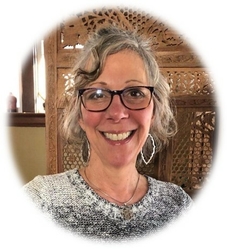Success Stories in Action:
Championing Access to Technology for Individuals Living in Poverty
An interview with Angie Lynch - Past Chair of Thunder Bay's Barriers to Employment & Training Working Group, ID Services Coordinator, Kinna Aweya Legal Clinic
What was the problem or challenge that your project or initiative responded to?
We wanted to help bring equity to digital access. The pandemic highlighted an inequity that was already there; a year in, the gap in access is still there. We wanted to get people the basics: phones and wifi access. We were thinking of digital access as a human right.
How did your project or initiative work to reduce the digital divide?
We got phones into people’s hands immediately. We did it at a very grassroots level. We wanted it to be as simple as possible. Not a loan, but a permanent phone for people, with a free data plan. In hindsight, we’d probably assess what they needed first: some people had a phone but not a data plan, for example. But it felt so urgent at the beginning of the pandemic that we just wanted to respond quickly. Even before the pandemic we were trying to get people phones as our group is about reducing barriers to accessing employment and training. We’d done a cell phone drive and collected about 30 phones, but they were all old and some needed to be wiped before distributing. A drive was not actually the quickest way of getting phones in hands, so when the pandemic started we changed direction. Instead, we sought new phones and funding for phones.
It started with a letter to TBayTel asking for a donation of phones, broad internet access, wifi hotspots in parks, social housing developments, and public places. They responded quicky and it was so collaborative. People were keen to jump on board. Those conversations led to getting wifi into five social housing complexes, including one senior’s complex. TBayTel provided the first 61 phones that were distributed through the Thunder Bay DSSAB. Our group then applied for two rounds of funding to be able to provide over 100 phones and data plans to people in need.
We also did advocacy with the provincial and federal governments. White privileged people in positions of power don’t think about not having phone and internet access and what that would mean. We had at least 100 organizations across the province sign onto our advocacy letter, and we helped to raise awareness of this issue.
If you were to scale up your project or initiative to other communities across the province, what barriers you would need to overcome and what resources or processes would you need to have in place?
My philosophy is that we shouldn’t even be doing this work. People need adequate income each month so they can make their own decisions about technology. If someone on Ontario Works or ODSP had an adequate income, they would be able to get a phone or a computer, as well as internet service. There are also larger issues of broadband infrastructure in rural and remote communities. That needs to be addressed on a more structural level. The digital divide is a big issue and this is a piecemeal approach. We need more than a band-aid! But we did help some people and that’s a start.
It’s important to have people on the ground giving input, the people who actually have the unmet technology needs. If we did it again, we’d have it driven by them, the people with lived experience. It’s a huge endeavor to equip people in this way. You need people from all the key poverty groups, and from local businesses engaged, as well as funding to properly equip people with working devices. When you are grassroots, you can do things more quickly, because there are fewer layers of approval. That is one advantage. So to management: lighten restrictions around things – let go and trust the process will work.
To read more about this initiative and the work of the Breaking Down Barriers Working Group:
https://www.eenet.ca/sites/def...OVID_Innovations.pdf
If you want to know more, Angie's contact information: angie.lynch@tbaytel.net

